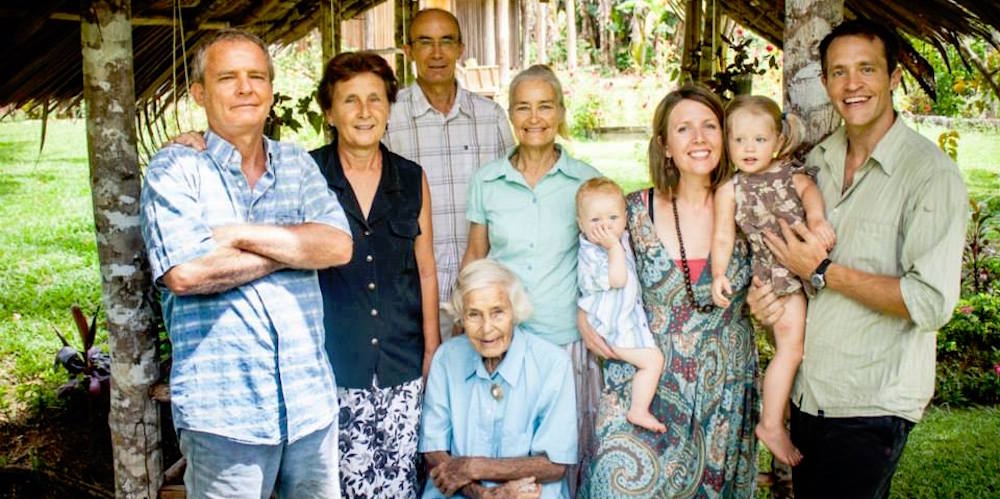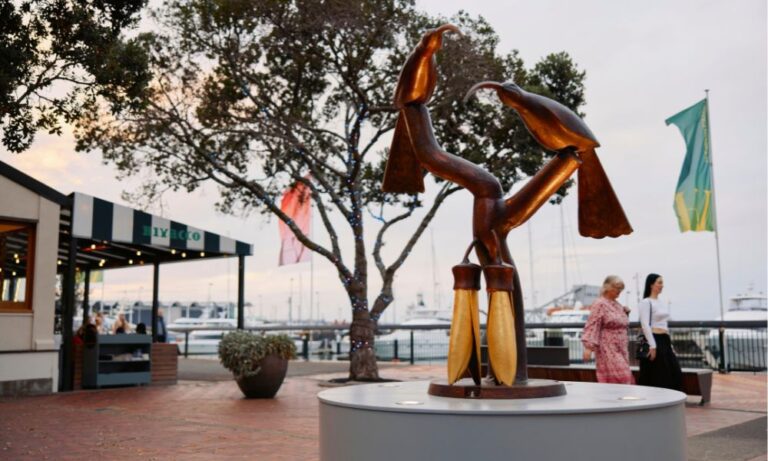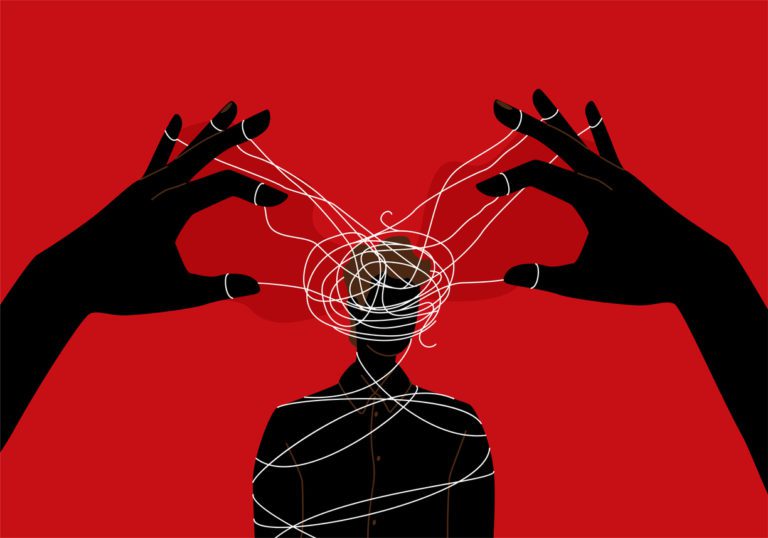No roads lead to Kapuna Hospital. Situated on the banks of the crocodile-infested Wame River, it is accessible only by water.
The Wame River is an east-west tributary of the mighty Purari, one of three rivers that make up the vast delta swamp of PNG’s Gulf Province.
Kapuna is the only hospital within paddling distance for the 35,000 people living in scattered tribal villages. Locals can spend hours – even days – navigating their dug-out canoes through endless waterways, winding around bush-clad, mud sediment islands to reach the hospital.
From Port Moresby, visitors fly on a 19-seater Twin Otter plane to a gravel airstrip, then travel four hours downriver in a speedboat or motorised dinghy. The first glimpse of Kapuna is a log jetty jutting into the river, tall palm trees, and a cluster of raised wooden buildings surrounded by swamps. In this peaceful but isolated paradise, everything centres around the busy five-ward hospital. Two doctors, one matron, five nurses and 19 community health workers see 1000 inpatients and 14,000 outpatients, and deliver up to 300 babies a year. In this land of the unexpected, staff never know what a day will bring – severe injuries, VIP visits, transport challenges or even spiritual battles. Recently, six men were brought in who had been tortured for suspected sorcery.
The settlement includes a primary school, classrooms for carpentry training and youth mentoring programmes, and the Community Health Workers’ Training School. Dedicated local staff have handled the day-to-day running of the hospital ever since Kiwi doctors Peter and Lin Calvert took over the pioneering work in 1954. Dr Peter spent 28 years building up the hospital and nursing school until he died in 1982. Dr Lin then ran the hospital for the next 20 years, helped by her son Colin and his wife Barbara. At 83, she stepped aside when her daughter, Dr Valerie Archer, returned to PNG in 2007 and became medical director of Kapuna and Kikori hospitals.
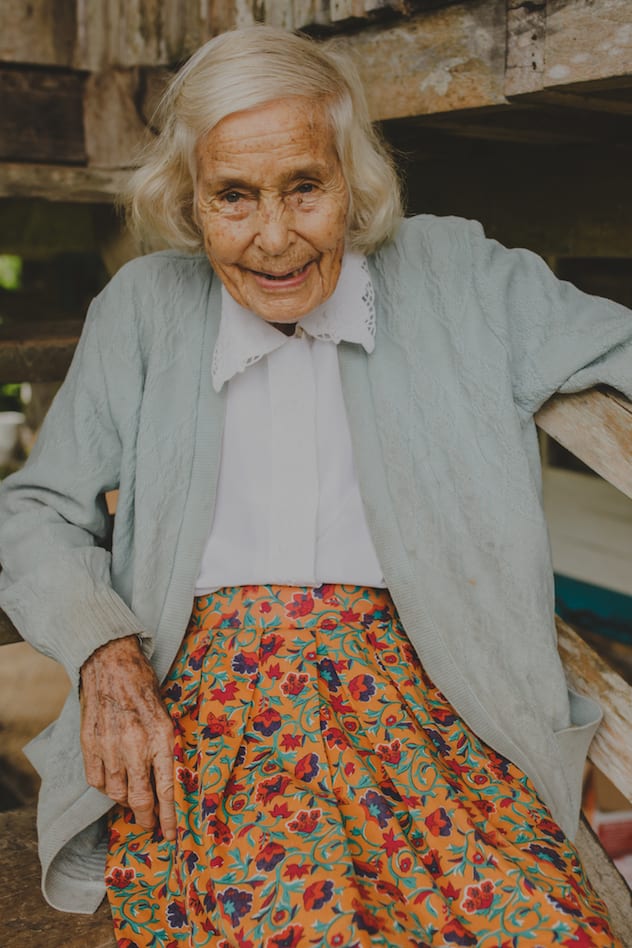
Today Grandma Lin has 15 grandchildren and 19 great-grand-children who live in Australia, Sudan, China, Canada, the Channel Islands and New Zealand. Although they are widely scattered, members of the extended family pitch in and help whenever they can.
Dr Lin is called ‘Bubu Mei’ (grandmother) by locals, and recently tribal leaders organised an event to honour her long years of service.
Built by the London Missionary Society (LMS) in 1949, Kapuna Hospital was funded by an anonymous UK donor. Local carpenters and a New Zealand builder constructed four thatch-roofed ‘wards’ connected by a verandah, and Australians, Dr Neville and Pat Anderson, started the work.
Meanwhile, back in New Zealand, two graduates from the University of Otago Medical School were seeking their life’s work. Linnie (Lin) Tombleson was the daughter of a Gisborne high-country sheep farmer.
Peter Calvert was a law student and an air force navigator in England in WWII. On the troopship coming home, he decided to swap his law degree for medicine. He and Lin married a few days after he graduated.
A letter from the London Missionary Society arrived just as they were going out one evening to see a play. During the interval they read: “Kapuna is situated in the low-lying swampy delta country of Papua. There would be plenty of opportunity for your wife to share in the medical work. There has been no doctor there for a year. We can offer you mud, mangroves and mosquitoes.”
“Trouble is, we didn’t know were Papua was!” Dr Lin recounts. After finally finding it on a map at the public library, they wrote to LMS confirming their interest and were then accepted immediately. Next, they gained post-graduate diplomas in tropical medicine in Sydney, before sailing to PNG on the Bulolo in October 1954, with three-year-old Valerie and baby Edward in tow. In Port Moresby they were welcomed by the governor-general, then caught a coastal trading vessel to Port Romilly Sawmill and were paddled across river to the bush hospital in a canoe.
Despite the humidity and lack of electricity, Lin and Peter fell in love with Kapuna and its people. One night Dr Peter performed an emergency caesarean on a pregnant woman by torchlight, assisted by six (new) nurses. Five nurses fainted on the floor, but fortunately the torch-bearing nurse (and the torch) lasted the distance.
Dr Peter also pioneered a short-wave radio ‘medical sked’ for missionaries living in isolated stations all over PNG. This service proved to be hugely popular, and the whole family learnt the radio alphabet.
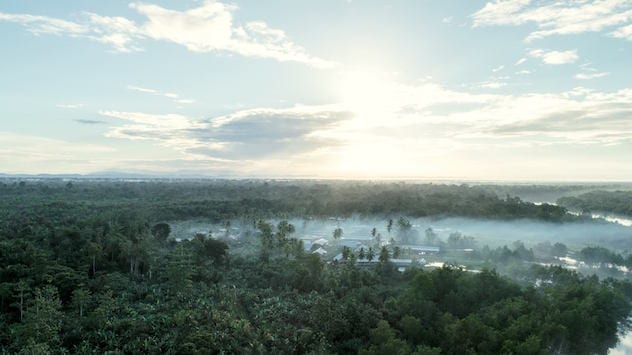
Travelling by canoe or float plane, Dr Peter set up 15 village aid posts, established health ‘patrols’, and achieved world-class immunisation coverage. Meanwhile, Dr Lin taught their four children – Valerie, Edward, Andrew and Colin – and helped out at the hospital.
The Calvert children progressively left to attend secondary school in New Zealand. Colin and his wife Barbara later returned to Kapuna, where they raised four children and have long been immersed in hospital, school and ministry work.
After Dr Peter died of bowel cancer in 1982, Dr Lin stepped into the void. “Because I had PNG citizenship and no other doctor could be found, I was allowed to stay on,” she recalls. For the next 20 years she was the resident surgeon, gyneacologist, anesthetist and paediatrician, battling each day against malaria, tuberculosis and myriad other tropical diseases.
In 2007, Dr Valerie took over the work. She graduated from medical school in Port Moresby and married a Kiwi, and now has four children and six grandchildren. Her son, Caleb, helped build the primary school, while her daughter and her son-in-law, Drs Destinee and Jono Macleod, worked alongside her for three months, before leaving to run a hospital in South Sudan.
After stepping aside from hospital work at 83, Dr Lin spent the next 10 years teaching trainee nurses and community health workers, and running refresher courses for health volunteers. She retired only recently at the age of 93.
PNG has more than its fair share of serious health issues. Tuberculosis is rife, with patients in Kapuna Hospital’s TB ward ranging from babies to elderly folk with every type of TB imaginable – heart, lung, abdomen, lymph nodes, and TB meningitis. Staff work with the government’s ‘Stop TB’ programme to reduce the transmission of the disease.
Pregnancy and childbirth complications are the biggest killers of women aged 15 to 45. Almost half of all women give birth without a doctor or midwife, and an estimated five women die in childbirth each day. Fortunately, the statistics are lower at Kapuna, with more women opting for a hospital birth.
UNICEF reports that out of the 15,000 child deaths in the Pacific region in 2005, 14,000 occurred in PNG, due to pneumonia, diarrhoea, and underlying malnutrition. Malaria, scabies, tropical diseases, elephantiasis and HIV/AIDS are endemic, and leprosy has also re-emerged in five provinces. A lack of access to clean water was a major factor in a cholera outbreak that took place in 2009, and diarrhoea is the seventh bigger killer.
To help combat these challenges, Colin Calvert manages a programme run by Gulf Christian Services (GCS) that distributes low-cost insecticide-treated mosquito nets to prevent malaria. It has also installed more than 700 water tanks to provide clean drinking water in 15 villages during a two-year ‘healthy village’ programme, and provides drug and HIV/AIDs awareness courses in local villages.
GCS project and finance manager, Dutch-born Wijnand Mulder, and his wife Dr Elize Mulder (who works at Kapuna Hospital), left jobs in the Netherlands to come to PNG with their daughters Vika, three, and Lova, one. GCS manages Kapuna and Kikori hospitals, which provide medical care for 75,000 people in the Gulf region.
“Kapuna Hospital is desperately in need of an upgrade,” says Mulder. “The hospital buildings need re-piling and reroofing. Timbers are rotting, foundations are sinking and the wards are rat-infested and over-crowded, with patients and their families sleeping on the floor.”
The planned upgrade would include a hospital rebuild, extension and renovation; the construction of a new off-loading pontoon and the installation of solar power.
“We also need joinery machinery – a four-sided planer, an extractor, thicknesser and table saw,” says Mulder. “We want to make our own doors, windows, cupboards, shelves, tables and beds, and start a joinery department in our existing carpentry training programme.”
Timber will be purchased from local mobile saw mills, rather than from international companies, to stimulate the local economy. “Most locals live off their gardens and have little access to cash,” Mulder explains.
The planned solar installation will supply the hospital with electricity 24/7, rather than the present six hours a day it gets from a diesel generator.
Besides rebuilding, the hospital desperately needs an X-ray machine to test TB patients, and help diagnose bone fractures and pulmonary and abdominal problems.Blood testing equipment is also urgently required as blood samples currently have to be sent to Port Moresby and getting results back is slow.
GCS have received 10 Million Kina in funding from the PNG-Australia Partnership through the Incentive Fund program to cover the cost of the building materials. This partnership between the Australian and Papua New Guinea Governments is going a long way towards the rebuild of the hospital, however GCS still need volunteer project managers and teams of tradesmen to carry out the work.
Dr Lin’s granddaughter Janai Calvert has started a Give-A-Little page to help fund the hospital rebuild, and to find willing volunteer carpenters, builders and plumbers.
“The building project will boost the morale of people in the much-neglected Gulf Province,” Mulder observes. “This place is a source of hope for local people as nobody else cares much for them. The people will benefit from improved facilities and from helping with the rebuild.
“The Calvert family has dedicated their lives to this work,” he says. “We’re asking you to volunteer for a few weeks or months … it’s a legacy worth joining.”


